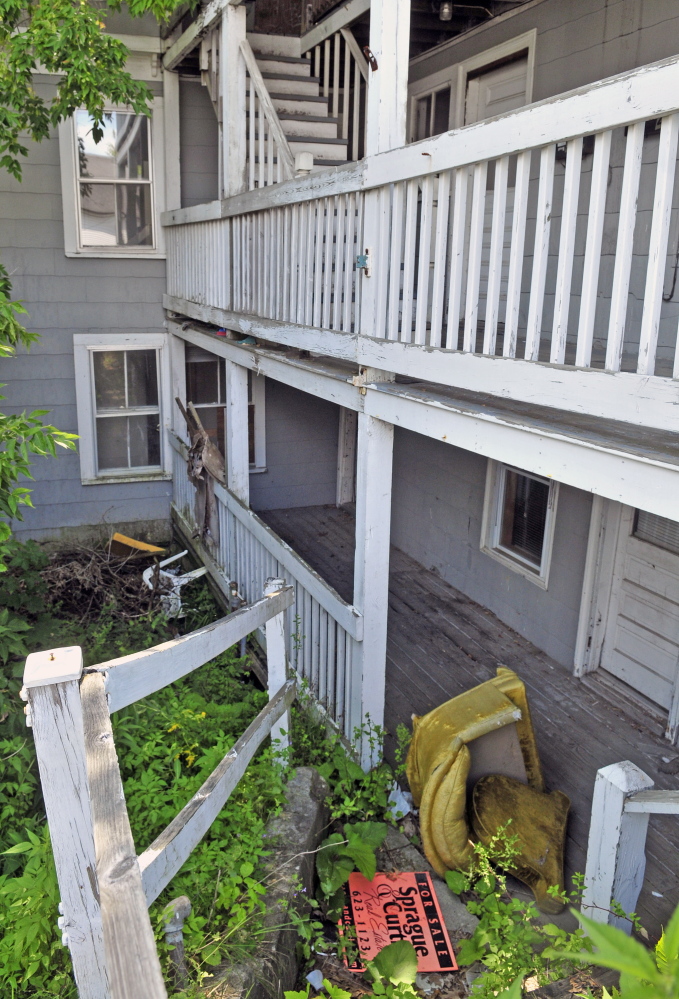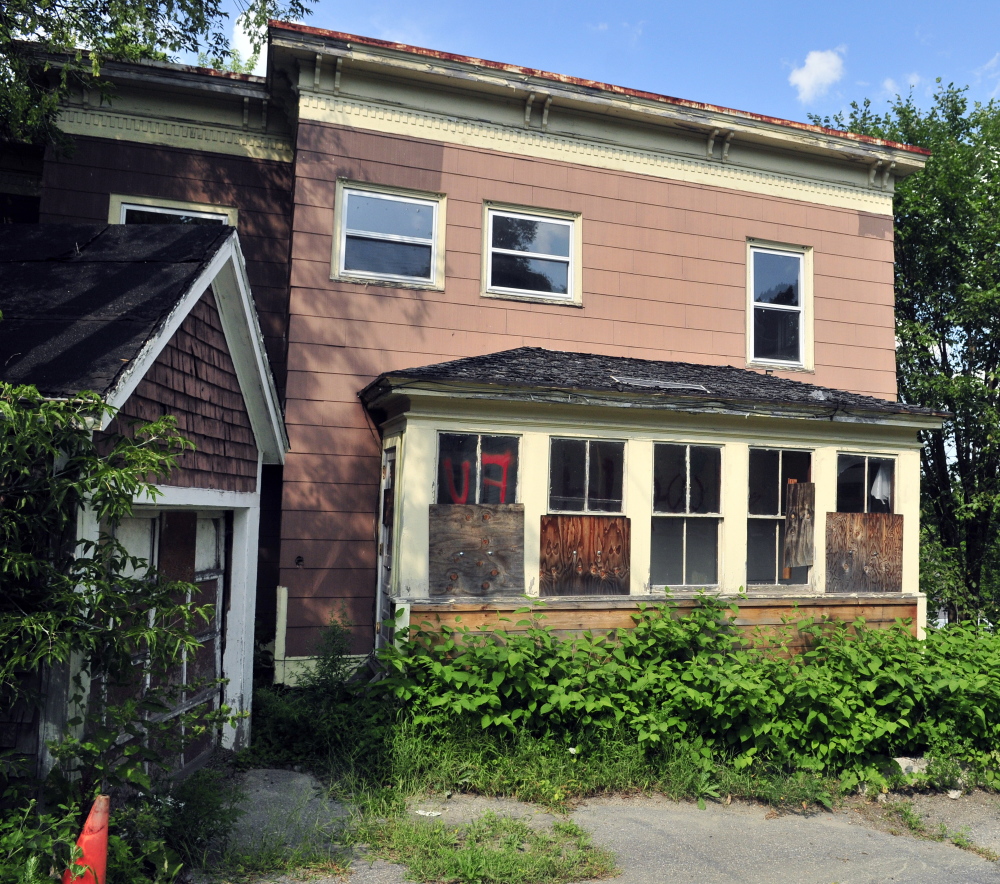AUGUSTA — A proposed vacant building ordinance goes too far and could have unintended consequences for homeowners, some city councilors and residents warn.
Resident and local real estate broker Kevin Judkins said the ordinance may have been meant to target large mortgage banks that don’t maintain properties in foreclosure, but it would also place a burden on homeowners who may have to leave their homes unoccupied for a variety of reasons.
The ordinance as proposed would require most owners of buildings left unoccupied for 60 days or more to register their buildings with the city, and pay a fee every six months of $100 for individuals or $200 for commercial entities.
The ordinance was drafted after residents and councilors complained about vacant homes being left unmaintained and unsecured.
“I understand the intent and need, but I’ve read the ordinance and I’m concerned about some unintended consequences,” Judkins told city councilors Thursday. “It seems to be written towards big, bad banks that don’t take care of properties, but it seems like it will impact a lot of other people.”
Judkins cited, as an example, a local elderly woman who moved out of her Augusta home to care for her brother out of state, leaving her home unoccupied for much more than 60 days. As it is currently written, she would be subject to the proposed ordinance, requiring her to register the home and pay fees.
“She has very little money, this would be a burden on her,” he said. “She’d have to pay fees, every six months, for the privilege of not being able to occupy her home. You need to look at all aspects of this ordinance and think it through a little better.”
City councilors, too, expressed concerns about the ordinance.
Ward 1 Councilor Linda Conti said she was approached by landlords in her neighborhood who asked that exceptions be made for unoccupied buildings that are being actively marketed for rent and buildings undergoing renovations.
And At-Large Councilor Jeffrey Bilodeau said he doesn’t think landlords should be required to notify the city every time their building is unoccupied if it takes them longer than 60 days to find a new tenant. He said he wants the ordinance to apply only to the owners of buildings who aren’t maintaining their buildings or meeting safety codes.
“If I have a duplex, and it’s not rented out for a while, I don’t think it’s any of (the city’s) business, as long as I’m paying my property taxes and my property is maintained,” Bilodeau said. “Why do I need to register with you? It’s my apartment. I thought we were going after abandoned properties, now we’re starting to go after vacant properties, for rent properties, that’s a slippery slope.”
Ward 3 Councilor Patrick Paradis suggested the ordinance be crafted to target properties that are both vacant and abandoned, not just vacant.
In response to those and other concerns, councilors plan to consider making changes to the ordinance at their informational meeting Aug. 27. The proposed new ordinance could go to councilors for a vote in early September.
The ordinance would require the owners of buildings vacant for more than 60 days to register with the city and provide contact information for someone in Maine responsible for the property who could respond to building problems and notifications of code violations or other city actions related to the building.
“There are a lot of houses that are just held in limbo, and there doesn’t seem to be anyone you can get in touch with who is in charge of it, that’s the issue we’re trying to get at,” Conti said. “The bank (that foreclosed on the property) may be in New York City, its property management company in California, and when you call them up you get nothing but a menu of people and they never call you back. I’m not talking about our local, state-chartered banks at all, they work with us very well.”
Judkins said he thought the part of the ordinance requiring contact information to be provided by building owners had value and was fair.
Keith Luke, deputy director of development for the city, said members of the committee that drafted the proposed ordinance were concerned allowing exceptions for properties being sold could provide a loophole that could allow building owners to avoid complying with it.
Nearly a year ago, resident Keith Ludden approached the City Council with concerns about a vacant property near his home in an otherwise well-kept west side neighborhood and asked the council to adopt property maintenance standards and enforce them. The house remains vacant, but at least some maintenance appears to have been done there in the meantime.
Ward 2 Councilor Darek Grant, chairman of the committee that drafted the vacant building ordinance, said there was interest initially in also setting property maintenance standards for vacant buildings as part of the new ordinance, but the city staff advised against setting property maintenance standards only for the owners of vacant properties.
Another committee, led by Ward 4 Councilor Anna Blodgett, is working to create a new property maintenance ordinance that would apply to all buildings in the city, both occupied and vacant. The committee has met twice so far and is expected to have a recommended ordinance in a few months.
The vacant buildings ordinance contains exceptions for people leaving their homes to live elsewhere temporarily but intend to return, such as “snowbirds” who winter in Florida. It also exempts vacation or resort facilities and members of the armed forces on active duty. However, those building owners still would be required to identify a property manager and provide the city with a valid emergency contact phone number for the owner or property manager.
Any building owners found to be in violation of the proposed new rules could be fined a civil penalty, under state statute, of a minimum of $100 and a maximum of $2,500, with each day in violation considered a separate offense.
Keith Edwards — 621-5647
kedwards@centralmaine.com
Twitter: @kedwardskj
Send questions/comments to the editors.





Comments are no longer available on this story